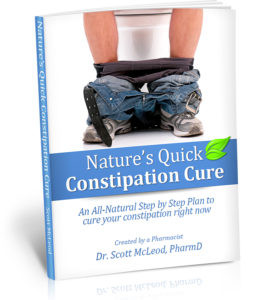Why is constipation so dangerous?

Constipation can be a serious concern for several reasons, particularly if it becomes chronic or is accompanied by certain complications. While occasional constipation is common and usually not a cause for alarm, chronic or severe constipation can have significant health implications.
Here are some reasons why constipation can be considered serious:
Discomfort and Reduced Quality of Life:
Constipation often causes discomfort, pain, and bloating. It can lead to a decreased quality of life, affecting a person’s daily activities and overall well-being.
Complications:
Prolonged constipation can lead to complications such as hemorrhoids (swollen blood vessels in the rectum or anus), anal fissures (tears in the lining of the anus), and rectal prolapse (when part of the rectum protrudes through the anus).
Impacted Stool:
In severe cases, constipation can cause stool to become impacted, meaning it becomes hard and difficult to pass. This can require medical intervention to remove the impacted stool, which may involve manual disimpaction or other procedures.
Bowel Obstruction:
In rare cases, chronic constipation can lead to a bowel obstruction, which is a blockage in the intestines. Bowel obstructions can be a medical emergency and require immediate treatment.
Secondary Health Issues:
Constipation can be a symptom of underlying medical conditions, such as irritable bowel syndrome (IBS), colorectal cancer, thyroid disorders, or neurological disorders. Treating the underlying cause is important to prevent further complications.
Impact on Digestive Health:
Chronic constipation can affect the overall health of the digestive system. It may lead to changes in gut bacteria, diverticular disease, or the development of diverticulitis (inflammation or infection of small pouches in the colon).
Nutritional Concerns:
Persistent constipation can interfere with nutrient absorption in the intestines, potentially leading to malnutrition or other nutritional deficiencies.
leading to malnutrition or other nutritional deficiencies.
Impact on Mental Health:
Chronic constipation can also have psychological effects, causing anxiety, depression, or frustration due to ongoing discomfort and disruption of daily life.
It’s essential to address constipation promptly, especially if it becomes chronic or if you experience severe symptoms. Lifestyle changes, dietary adjustments, increased physical activity, and adequate hydration are often effective strategies for managing and preventing constipation.
If constipation persists or is associated with concerning symptoms, it is advisable to consult a healthcare professional for a proper evaluation and treatment plan. They can help identify any underlying causes and provide guidance on appropriate treatments or interventions to alleviate constipation and prevent serious complications.